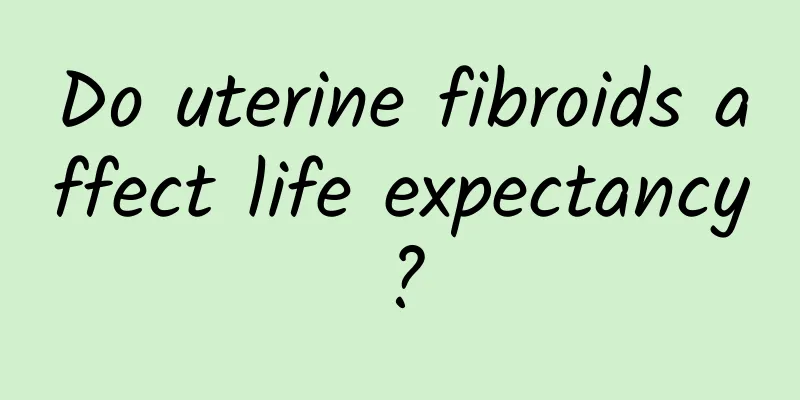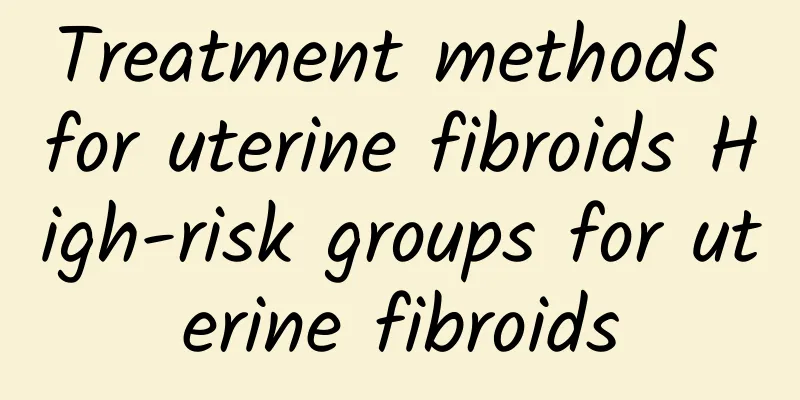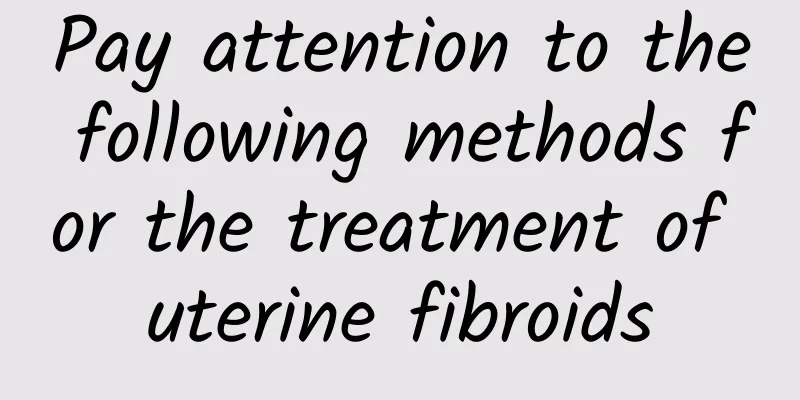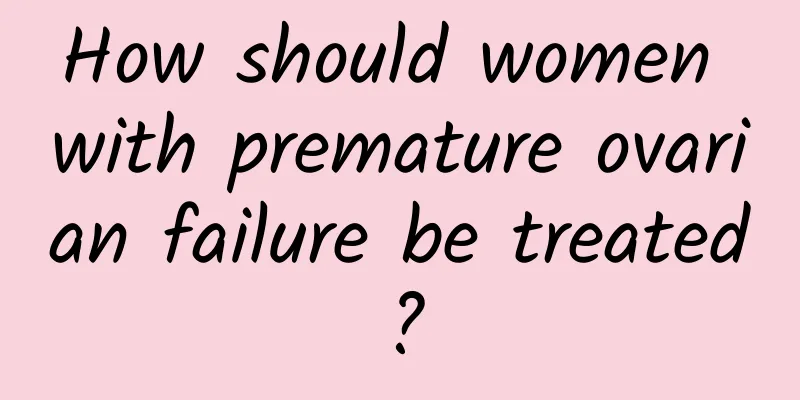Do uterine fibroids affect life expectancy?

|
Does uterine fibroids have an impact on life expectancy? Uterine fibroids are the most common benign tumor in gynecology. The impact of this disease on patients is very huge. If not treated in time, the disease will progress and the harm caused will be immeasurable. So, does uterine fibroids have an impact on life expectancy? Let's take a look. First of all, I need to tell you that uterine fibroids have no effect on the patient's life span. As long as you actively receive treatment, do not delay the best treatment time, and take good care of yourself after surgery, follow the doctor's advice, and prevent the disease from recurring, you can get rid of the troubles of the disease. Although uterine fibroids will not affect life span, the harm they cause is still very great. Anemia occurs. Long-term menorrhagia in patients with uterine fibroids can easily lead to secondary anemia and even anemic heart disease. In severe cases, symptoms include general fatigue, pale complexion, shortness of breath, and palpitations. Torsion occurs. Subserosal uterine fibroids can twist at the pedicle, causing acute abdominal pain. If the pedicle is severely twisted and surgery is not performed immediately or it cannot be turned back by itself, the pedicle may be broken and a free fibroid may be formed. The twisted fibroid can also drive the entire uterus, causing axial torsion of the uterus. Infertility, miscarriage, premature birth, and other complications during delivery. Uterine fibroids can cause abdominal pain and uterine contractions during pregnancy, which need to be differentiated from premature birth. Concurrent gynecological inflammation: patients with uterine fibroids will experience symptoms of menstrual changes, such as increased menstrual flow and prolonged menstrual period, and irregular bleeding can lead to pathogenic bacteria invasion, causing gynecological inflammation such as adnexitis and pelvic inflammatory disease. Uterine fibroids combined with uterine body cancer accounted for 2%, which is much higher than uterine fibroids combined with cervical cancer. Therefore, menopausal patients with persistent uterine bleeding should be alert to the presence of endometrial cancer. It can be seen that the harm caused by this disease must be prevented, so once it is discovered, it must be treated in time. |
<<: Are uterine fibroids fatal?
>>: Will uterine fibroids affect life expectancy?
Recommend
What if my menstruation stopped for three months?
What happened if my menstruation stopped for thre...
Understanding the symptoms of vulvar leukoplakia is very helpful for treatment
For most of our female compatriots, what they car...
Patients with pelvic inflammatory disease of qi stagnation and blood stasis type can eat more peach kernels
Traditional Chinese medicine pays attention to th...
What are the hazards of abortion for women? 8 tips to help women avoid pregnancy and avoid the risk of abortion
In life, many women get pregnant unexpectedly due...
Specific care methods for vulvar leukoplakia
Vulvar leukoplakia is a type of gynecological dis...
alarm! 90% of burns in children are caused by touching hot objects
According to the Taipei City Government's Dep...
What anti-inflammatory drugs should be taken for pelvic inflammatory disease and adnexitis? What are the symptoms?
Pelvic inflammatory disease (PID) is a gynecologi...
Professional knowledge on causes of miscarriage
The causes of miscarriage are very complicated. S...
Lose weight by eating vegetarian food? Five healthy principles for less frying and more steaming
Obesity is the public enemy, but can a vegetarian...
Can endometrial tuberculosis be treated?
It is known to all that illnesses must be treated...
What should women do if they have pelvic peritonitis?
As we all know, pelvic peritonitis can be acute o...
What are the causes of irregular menstruation in women? These 4 major causes of irregular menstruation are very common
Among gynecological diseases, irregular menstruat...
What are the harms of artificial abortion?
Artificial abortion can cause great harm to women...
What are the dietary principles for endometrial tuberculosis?
Endometrial tuberculosis generally manifests as d...
What should I do if bacterial vaginosis recurs?
The recurrence of bacterial vaginosis can general...









